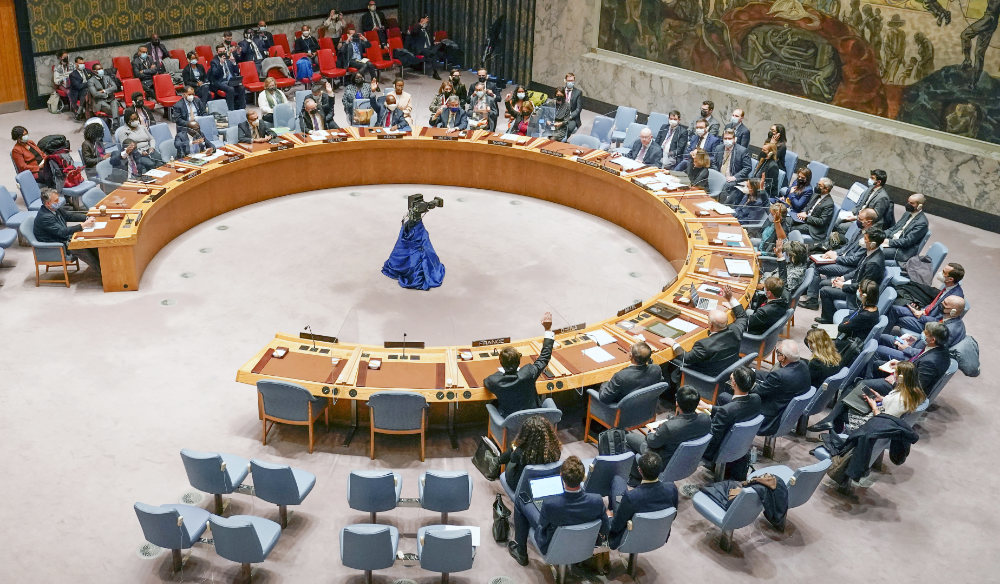NEW DELHI: India is facing a dilemma in its position over the Russian invasion of Ukraine, former diplomats and experts said on Sunday, as New Delhi tries to balance its close ties with both the West and Russia.
Russia launched a full-scale assault on Ukrainian territory and major cities, including the capital, Kyiv, on Feb. 24. Air, sea, and ground attacks have since intensified, forcing almost 200,000 Ukrainians to flee to neighboring Poland, Slovakia, Hungary, Romania and Moldova.
After a US-sponsored resolution demanding that Russia cease its attacks was tabled in the UN Security Council, India, a strategic partner of both Moscow and Washington, abstained from voting. The Indian government called for “a return to dialogue” and offered to “contribute in any way towards peace efforts.”
Nandan Unnikrishnan of the New Delhi-based Observer Research Foundation told Arab News: “What India is trying to do is to balance between two partners who are essential to its own calculations.”
New Delhi’s ties with Moscow span more than seven decades, with half of India’s military hardware being sourced from Russia. On the other hand, its partnership with the US has been growing for the last 20 years, with both countries being members of the Quad, a four-state strategic security dialogue that also includes Japan and Australia, which was established in the face of increased Chinese economic and military power.
“Everyone understands that India is doing a very difficult task of dancing on a rope,” Unnikrishnan said, adding that while Russia praised India’s neutrality after its abstention on the Security Council vote, the US administration of President Joe Biden expressed its understanding.
“The Biden administration’s statement after the vote said that they understand that the relationship with Russia is distinct,” he said. “India needs to very carefully calibrate the impact it would have if it takes one stand or other.”
Anil Trigunayat, New Delhi’s former ambassador to Moscow, said that given India’s strategic partnerships with the US and Russia, it has to “calibrate its own national interests and does not wish to be bogged between a superpower rivalry.”
Arvind Gupta, director of the think tank Vivekananda International Foundation, who served at the Indian embassy in Moscow, said that taking a stand is “difficult” not only for India, but also other countries.
“I feel India has taken a balanced view — not going into outright condemnation but expressing concerns and talking about the legitimate interests of all concerned,” he said. “That places India in a position where it can play some role in bringing down the tensions.”
But remaining neutral may become difficult, as pressure is likely to mount on India.
“India would come under significant pressure from both the US and Russia to show support for either side,” Pranay Kotasthane, deputy director of the Bangalore-based Takshashila Institution, told Arab News.
“Given its military overdependence on Russia on one hand, and the overwhelming agreement with the West on countering China on the other, India’s choices have become more constrained,” he said. “It will be a serious test of India’s diplomacy to keep both sides happy. It seems to be pushed to strategic autonomy by compulsion, not by choice.”
Policy and defense expert Manoj Joshi of the Observer Research Foundation said India has been avoiding taking a stand, but continuing a policy of neutrality may become a challenge in the long run.
“One UN member has attacked another UN member, so an aggression has taken place. India called for cessation of hostilities. If India can sit on the fence they should sit on the fence if they think they can do it. But it’s going to be increasingly difficult,” he said.
“When a conflict situation has arisen, it’s very difficult to stay neutral. There is a pressure from both sides to support them. It’s one thing to be neutral when there is no shooting going on. When the shooting is going on you have to make a choice.”




